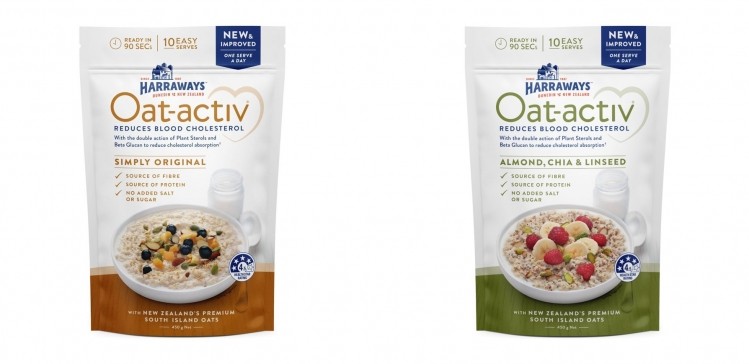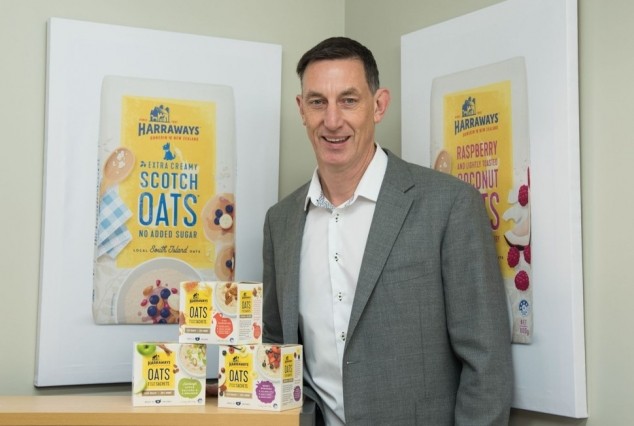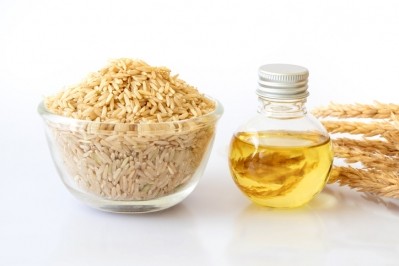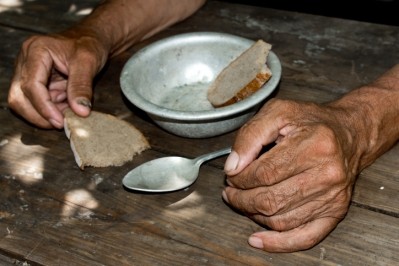Ode to oats: NZ’s 154-year-old Harraways focuses NPD on fortification and collaboration

Established in 1867, Otago-based Harraways remains a family-owned company till date despite owning the only oat mill in New Zealand, making it an essential part of the oat industry for all sorts of processing from dehusking to sterilization to processing.
“We’re still maintaining our milling process in the very traditional way, i.e. following the traditional Scottish approach to rolling oats to get a high-quality product – but at the same time we’re definitely focused on keeping up with the times e.g. with a recent NZ$2.5mn (US$1.8mn) upgrade to the mill to use the latest German technology to do this,” Harraways CEO Henry Hawkins told FoodNavigator-Asia.
“Along those lines it’s of course also important to also keep up with current F&B trends, and here healthier, plant-based products which are lower sugar and low GI are areas where oats fit perfectly into as they’re high in protein, fibre, β-glucan but low in sugar.”
To make a healthy product even healthier, Harraways Marketing Manager Peter Cox also told us that the firm has launched a line of fortified packaged oats dubbed Oat-activ, an area with ‘a lot of oportunity’.
Harraways sources its plant sterols as a plant extract powder from Europe, which is mixed into its oats.
“Oat-activ is really a combination of rolled oats and plant sterols, which provides double action against high blood cholesterol,” said Cox.
“We did some consumer studies recently, and consumers overall saw an LDL (bad) cholesterol reduction of 9% over an eight-week period of eating Oat-activ.
“The science behind this is that plant sterols prevent the body from absorbing LDL in the intestines, which is then excreted from the body, and the body will use its reserves of previously created cholesterol in the liver so over time an overall blood cholesterol reduction effect will be seen, [so this adds on to the well-known β-glucan cholesterol-reduction role.”
The Oat-activ line currently has just two products – Simply Original (95.5% oats, 4.5% plant sterols) and Almond, Chia and Linseed )88.5% oats, 4.5% plant sterols, 3% almonds, 2% chia seeds and 2% linseeds), but the firm has plans to further expand this fortified oats range based on health functions.
“There are so many general health trends which we can tie into with this range – an obvious one would be the provision of protein and strength for the elderly, and we also have ideas for a product to aid gut health,” said Cox.
“Some other interesting ones would be for sleep – so many people are having trouble with sleep these days so such a product would certainly have a market, and the other one is to look at allergies as there are so many of these allergy issues these days, and it is only getting bigger – we think we can make something easier for those suffering from allergies to digest and eat.”
The other big component of Harraways’ NPD plans surrounds co-manufacturing and co-product development collaborations with other New Zealand firms.
“We believe that a lot of the future will be in co-manufacturing and co-NPD work, and there are so many ways to go about this,” said Hawkins.
“One of the methods is via recipes, and we’ve already done some of this in collaboration with New Zealand ice cream maker Killinchy to come up with a range of vegan ice cream + oat desserts from cheesecakes to pies.
“Moving forward we also have ideas beyond this, such as co-manufacturing or creating recipes with chocolate firms to have new ways of eating oats with chocolate; or even co-manufacturing with craft beer firms to have oat-brewed beer.
“The craft beer market especially has quite a following and is growing fast in Australia, New Zealand and even Asia, so this idea of brewing beer using oats would be an interesting one for both sectors.”
Economics and other trends
In addition to these, the firm also views oats as an important food source especially during COVID-19 when many consumers are suffering economically.
“Oats are important as they are both cost-effective and versatile,” said Cox.
“Many economies are going through tough times now, and oats can play a good role as a food source, where even the financially-challenged can buy a bag as it’s cost-effective, and do a lot of different things with it.”
He also pointed out that during the COVID-19 lockdowns in New Zealand, many people moved to try home baking, which was a major boon for the industry overall.
“The other very major, or should I say biggest trend for oats right now is oat milk, which is really gaining momentum here and growing fast in Asia too. New Zealand is renowned for our dairy, but due to the ecological issues involved, even the government has been moving to diversify to develop and innovate more plant-based products.
“That said, I believe that both dairy and plant-based need to co-exist in New Zealand – dairy as an industry here is way too big for us to even consider removing it, but there is certainly opportunity for both sides to co-exist in the market.”
Sustainability as a modernising move
Harraways has also moved to improve its sustainability efforts in response to rising demand from consumers so as to keep up with the times, including a NZ$500,000 (US$360,000) project to lower some boiler emissions and also initiatives to improve its packaging.
At present, over 50% of branded Harraways products use recyclable, non-single use plastic packaging.











